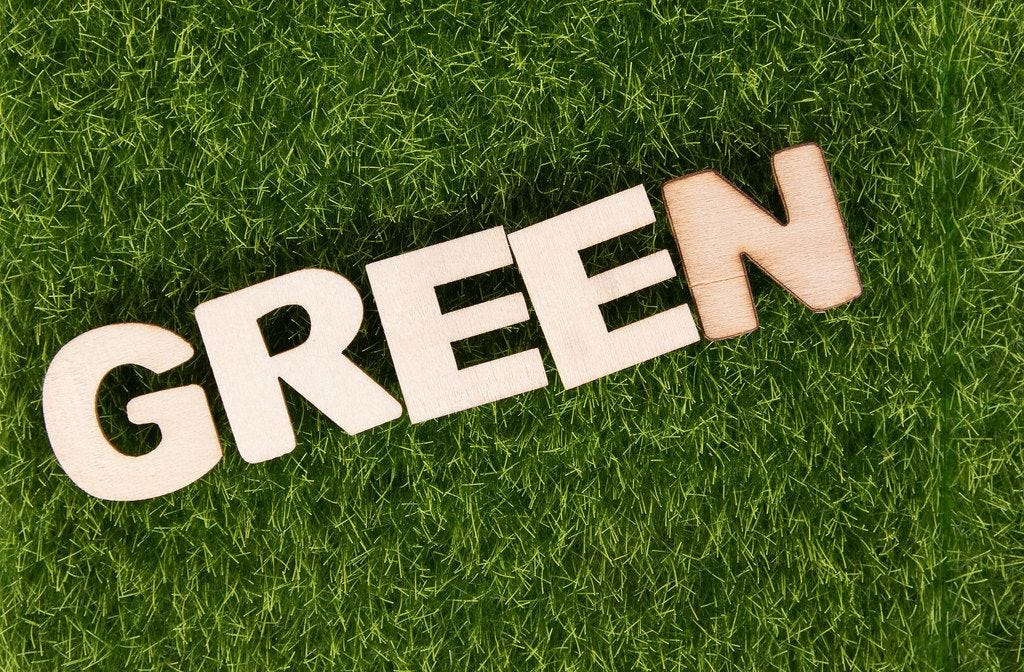
Previously, we looked at the notion of “Magic Words:” words which have been imbued with a magical-type power to change the course of conversations and even thinking. The postmodern movement argued that words have no intrinsic meaning and are just masks for power. It should not surprise us that those who thought in this way would then start to use words as a means of power and control over thought. I have dubbed the words they use to form discourse to be “Magic Words.” The first Magic Word I looked at was “Gay,” then I looked at “Progress” and “Change,” and then “Phobia.”
Now we are looking at a different word or group of words: “Green” and “Eco.” One would have to be living under a rock to not know of the massive attention focused on climate and saving the planet in recent decades. With this comes an interesting pass that is given to anything that is claimed to be eco-friendly or green.
Who Wants Pollution?
It is important to start out by noting there is probably no one of consequence who wants to pollute the earth. Disagreements abound over what amounts to pollution and what to do about it, but this doesn’t mean that anyone is rubbing their hands and cackling at the prospect of damaging the environment. One of the problems of the heightened rhetoric today is that some people are tarred as not caring about the environment, with the implication that they are evil because of these types of disagreements.
It has been shown that reducing poverty actually improves the environment, because when you are literally dirt poor you don’t care about the environment, merely surviving. However, as wealth increases, so does concern for caring for the environment. Because of this, some, such as Bjorn Lomborg, argue that the way to best take care of the environment is to help raise the poorest of the world out of squalor. Therefore, the debate is often not about whether to take care of the earth or not, but what is the best means to do so.
Despite this, a lot of heat is generated in our discourse as those who are not on board with “The Climate Agenda” are accused of wanting to destroy the planet and other such things. The language tends to paint one side as the good guys and the other side as the bad guys. It is not hard to find examples of those who question environmental policies being called evil. On the other side, it is often assumed that being “Green” is superior.
“Green” as a Magic Word
Today, anything that gets the label of being “Green” is often unquestionably accepted as good. (For my farming friends, I’m not talking tractor brands.) Rather, the term “Green” is applied to something as a means of ending the argument by decreeing that it is a good thing. The implication is that one should not reject the “Green” alternative but favor it.
“Green Energy” is automatically considered to be superior to other forms of energy, but is it as simple as that? Take windmills, for instance; it is assumed that wind power is environmentally friendly. However, windmills are a threat to birds, and windmill operators in the US have been given permits that allow them to kill eagles without consequence.[1] Likewise, while a solar cell does not create any pollution when it is operating, for a total understanding of its environmental impact, one needs to take into account the pollution created in mining the rare earth minerals, as well as the problems with disposal of used solar panels.[2]
All of this is also based on the implicit belief that certain non-Green things are bad, and we are permanently harming the earth by using or doing them. After living through the “Global Cooling” scare, the “Global Warming” fears and now “Climate Change,” I am getting somewhat skeptical of the sweeping predictions. After all, for a scientific theory to be valid, it needs to successfully predict results, and after decades of failed predictions, it is hard to hold that these are truly valid. One of the big questions is that now carbon dioxide (CO2)is considered a pollutant even though it is necessary for life. In fact, the rising CO2 levels have been predicted to cause deserts to shrink, but they are actually becoming greener.[3]
“Green” and “Eco” Marketing
Companies have been quick to pick up on the value of marketing their products with the “Green” or “Eco” label. For instance, in 2012 Ford started to develop a new line of engines that utilize turbochargers in order to generate more power and better fuel economy. Some of these engines have indeed produced very good results.[4] However, it is curious how Ford, rather than market it as a turbo-boost, dubbed the engines “EcoBoost.” By this move, Ford has been able to make the generally less fuel efficient full-sized pickup appear to be an environmentally friendly vehicle.
This same tactic has been used by countless other industries in order to sell their products. Often, however, a product might use less energy, but if the product is poorly made and will need to be replaced sooner than other alternatives, the total effect of pollution may actually be worse.
Sometimes all of this seems to rise to the level of environmental grandstanding. This year my wife and I came across a very humorous example. While helping our daughter move, we decided to visit the Kentucky Dam, a hydro-electric dam built as part of the Tennessee Valley Authority work projects during the Great Depression. There in the parking lot for this massive power generator was a government funded Electric Vehicle charging station, with its own solar cell on the top. Now, you will not convince me that there was less environmental damage done in making, shipping, and installing this solar cell than there would have been from running a wire from the nearby transformers. However, this charging station was brightly colored and marked so as to make a public statement that it is “Green.”
Is “Green” Good?
I do not doubt that pollution, as well as human sin, has a detrimental effect on the earth.
For the creation waits with eager longing for the revealing of the sons of God. For the creation was subjected to futility, not willingly, but because of him who subjected it, in hope that the creation itself will be set free from its bondage to corruption and obtain the freedom of the glory of the children of God. For we know that the whole creation has been groaning together in the pains of childbirth until now. And not only the creation, but we ourselves, who have the firstfruits of the Spirit, groan inwardly as we wait eagerly for adoption as sons, the redemption of our bodies. (Rom 8:19-23)
However, we often do not understand the full effects of this, and often our predictions are wrong. What is important is a certain level of humility and a willingness to discuss these topics while taking into consideration all sides without name calling or grandstanding. To claim that your position is superior because it is “Green” can be little more than posturing.
[1] Matthew Brown and Camille Fassett, “Criminal Cases for Killing Eagles Decline as Wind Turbine Dangers Grow,” AP News, 17 May 2023, https://apnews.com/article/dead-eagles-wind-turbines-enforcement-biden-53ce35355433e18a27324f9254a2475a.
[2] Chandra Philip, “Discarding Used Solar Panels in Landfills Poses ‘Significant’ Pollution Risk, Gov’t Says,” The Epoch Times, 24 July 2024, https://www.theepochtimes.com/world/discarding-used-solar-panels-in-landfills-poses-significant-pollution-risk-ottawa-says-5692902.
[3] Stefan Theil, “Climate Change Is Making Deserts Greener,” The Daily Beast, 13 July 2017, https://www.thedailybeast.com/articles/2011/08/26/climate-change-is-making-deserts-greener; Jessica McKenzie, “Desertification Was Supposed to Be the ‘greatest Environmental Challenge of Our Time.’ Why Are Experts Now Worried about Greening?,” Bulletin of the Atomic Scientists, 12 August 2024, https://thebulletin.org/2024/08/desertification-was-supposed-to-be-the-greatest-environmental-challenge-of-our-time-why-are-experts-now-worried-about-greening/.
[4] For full disclosure, I own a 2023 F-150 with the 3.5 EcoBoost engine.




